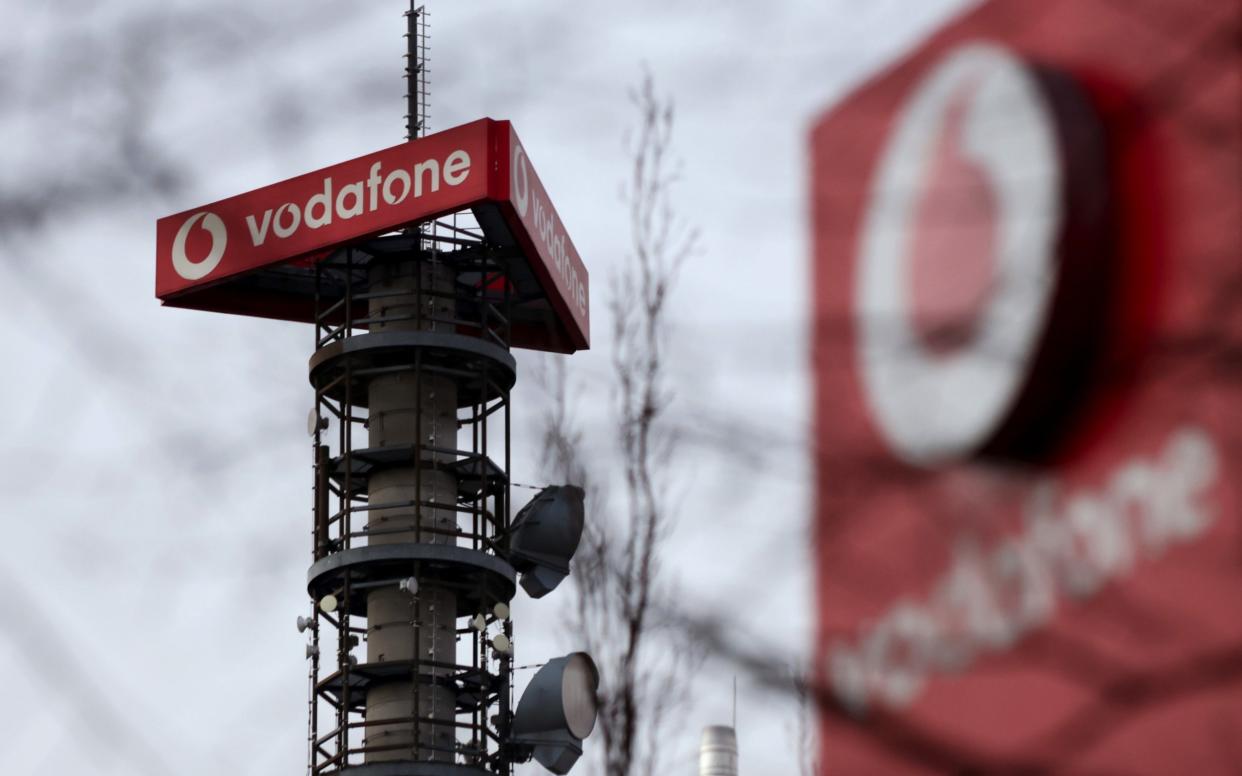Vodafone eyes joining BT's ultrafast broadband push

Vodafone is in talks with BT to help fund its plans to bring ultrafast broadband to an extra 5m homes and businesses.
Nick Read, chief executive of Vodafone, said it was in discussions to become an investor in the full-fibre rollout by BT's broadband network operator Openreach.
BT is preparing to step up plans to upgrade old copper networks to faster full-fibre broadband from 20m to 25m premises by the end of 2026.
Mr Read said: "We are actively engaged with Openreach to understand their plans and what they are looking at, but we will explore with many players - not just BT."
Vodafone also plans to increase investment in its mobile network.
Shares in the company fell 8.9pc to 129p amid investor fears that the expansion plans will put extra pressure on free cash flow. It came as Vodafone posted an 11.9pc fall in cash flow to €5bn (£4.3bn) for the year to March.
Carl Murdock-Smith, an analyst at Berenberg, said: "Given decades of evidence of value destruction in the sector, investors are naturally cautious of “jam tomorrow” investment narratives.
"Having seen Vodafone launch Project Spring in 2013 and the German gigabit investment plan in 2017, many investors will simply see today’s guidance as the next in a line of capex announcements to justify pre-existing growth trends."
The Telegraph revealed in April that Vodafone was in talks with Openreach about selling access to the full-fibre network after Ofcom published the broadband pricing framework.
Mr Read has been pursuing growth by offloading fringe operations to focus on Europe and Africa while overhauling Vodafone's digital operations.
After slashing costs and spinning out his mobile masts business Vantage Towers into a listed company, he has turned his attention to focusing on network upgrades.
Results published on Tuesday for the year to March revealed Vodafone swung to a profit following a boost from its €18bn takeover of Liberty Global's German and eastern European cable companies in 2019.
The mobile operator recorded a €536m (£460m) profit, compared with a €455m loss in 2020 when it wrote off the value of its Indian joint venture Vodafone Idea.
However, revenues fell 2.6pc to €43.8bn as it continued to suffer from sluggish smartphone sales and pandemic-induced travels bans.
The charges some customers pay when using their mobile phone abroad were hit particularly hard as fewer customers travelled due to restrictions imposed to limit the spread of coronavirus.
Mr Read said the company's digital transformation had saved €500m, while Vodafone had recorded a "fast rollout of our next generation mobile and fixed networks".
Mobile customers in Europe rose by 2pc to 65.4m over the period, with contract churn - the rate at which it is losing customers - easing from 14.6pc to 13.7pc.
Vodafone's debt pile also fell from €42bn to €40.5bn.
The FTSE 100 firm carved out Vantage Towers for a €12.1bn listing on the Frankfurt Stock Exchange earlier this year to help pay down its debts.
The move is part of a growing trend from telecoms operators to milk their infrastructure assets as investors seek their stable long-term returns.
Mr Read underscored the opportunity presented by the €750bn EU recovery fund for supporting Europe's pandemic-hit economy.
Around a fifth of the grants are being funelled towards digital programmes, while 70pc are in countries where Vodafone operates.
Take a look at Vodafone deals

 Yahoo News
Yahoo News 
